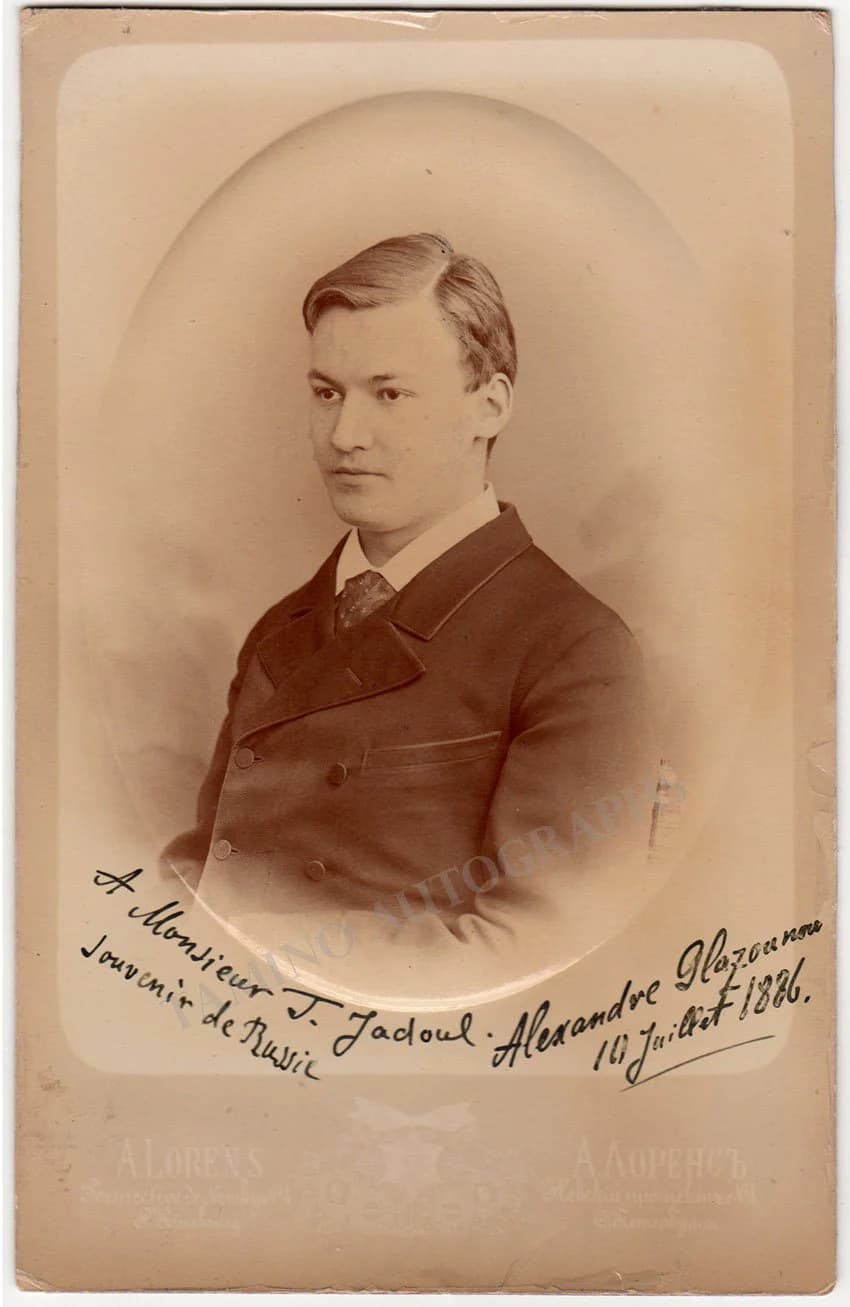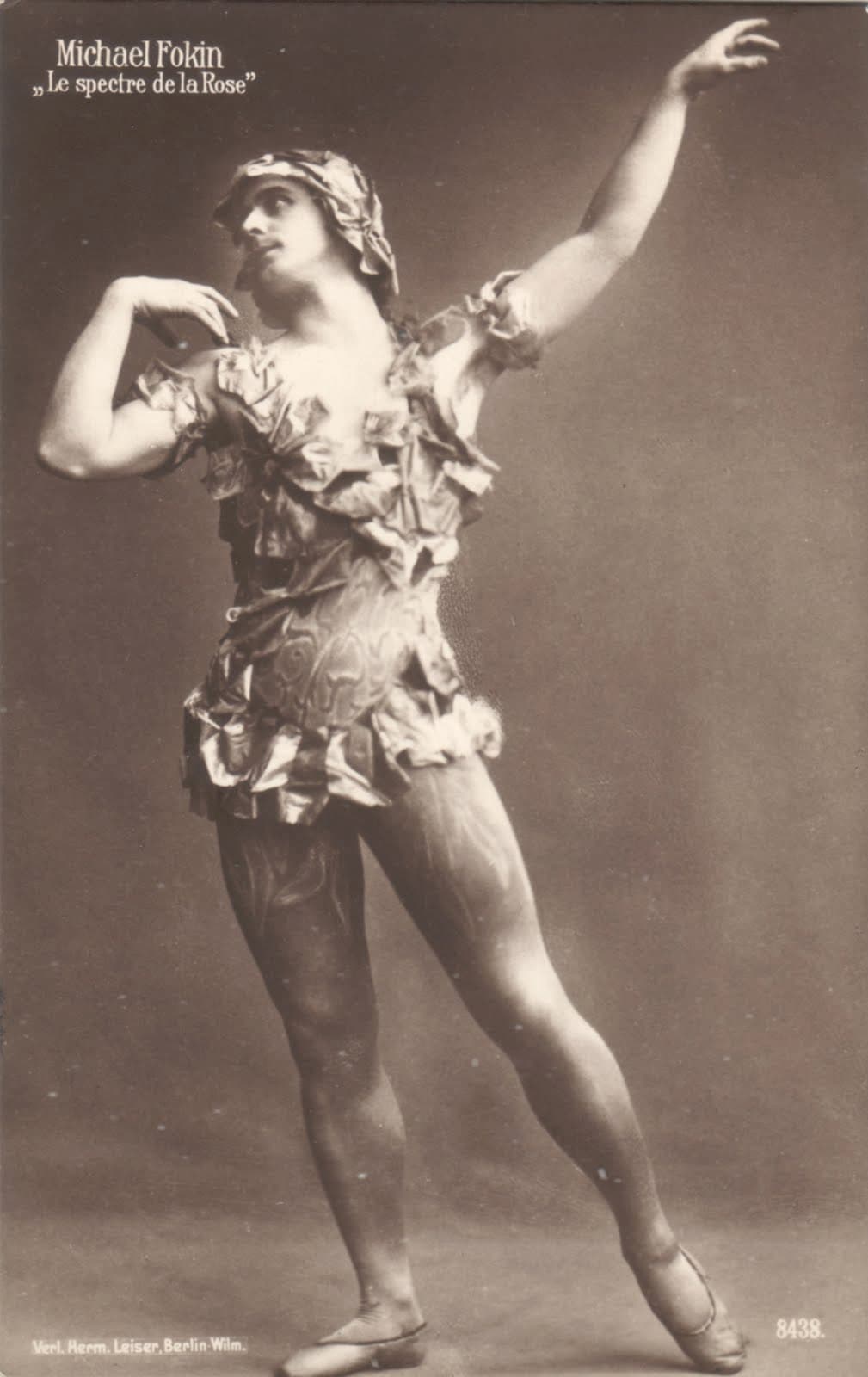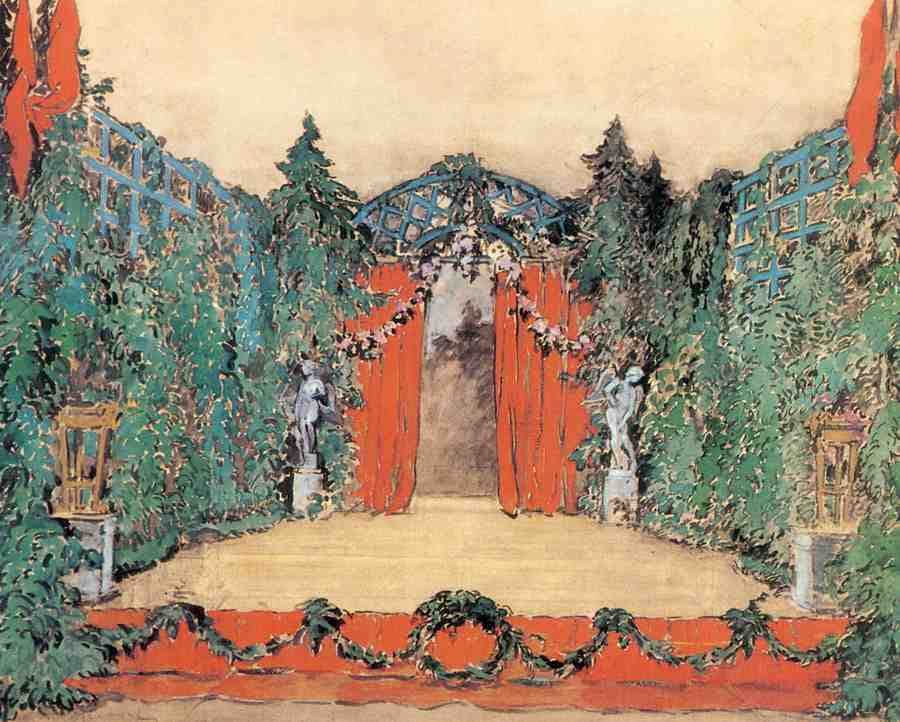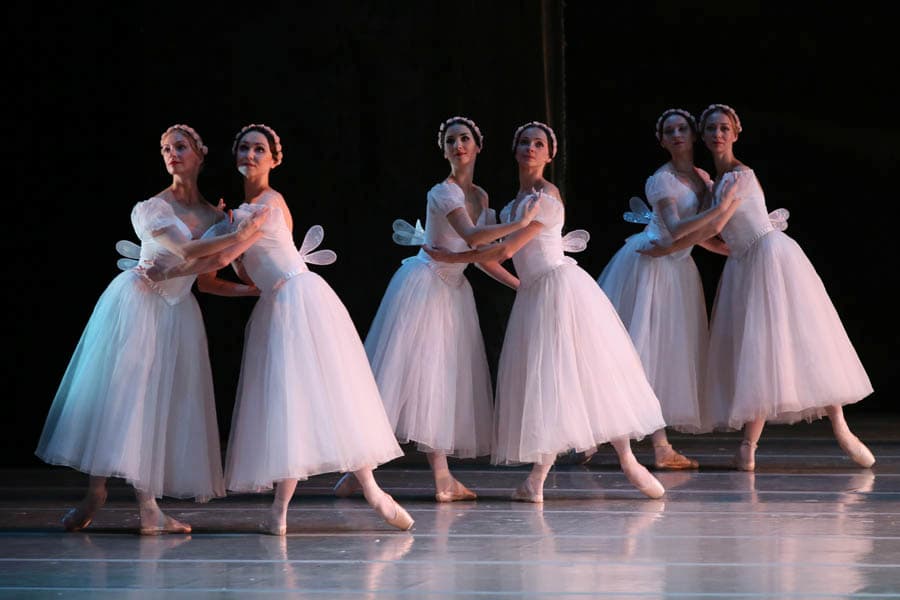In 1892 Alexander Glazunov (1865-1936) set to work on an orchestral suite of arrangements of piano music by Frédéric Chopin. Entitled Chopiniana it was introduced to the public in December 1893 by Rimsky-Korsakov, and published by Belyayev one year later.

Alexander Glazunov
When the famed choreographer Michel Fokine (1880-1942) stumbled across the score he immediately contacted Glazunov for permission to use the music for a ballet. Glazunov was delighted and even offered to add Chopin’s Waltz in C minor to the composition. Fokine first presented his poetic reverie at the Mariinsky Theatre in St. Petersburg under the title “Rêverie Romantique: Ballet sur la musique de Chopin,” on 6 April 1907.
Alexander Glazunov: Chopiniana, Op. 46 “Polonaise” (Deutsches Symphonie-Orchester Berlin; Vladimir Ashkenazy, cond.)

Michel Fokine
Glazunov initially studied with Balakirev, and subsequently, composition with the young Rimsky-Korsakov. He quickly became his favourite student, and Rimsky-Korsakov exclaimed that his young charge “improved not from day to day but from hour to hour.” Glazunov introduced himself as a composer at age 16, presenting his first symphony to the public.
As a pianist, Glazunov had always been fire and flame for the music of Chopin, and his Chopiniana indicated a specific tribute from one composer to another. Glazunov apparently followed the example of Tchaikovsky, who had entitled his Fourth Orchestral Suite “Mozartiana.”
Alexander Glazunov: Chopiniana, Op. 46 “Nocturne” (Deutsches Symphonie-Orchester Berlin; Vladimir Ashkenazy, cond.)
For his Mozartiana, Tchaikovsky presented orchestral transcriptions of Mozart piano pieces and a free arrangement of Liszt’s transcription of the “Ave Verum Corpus.” The concluding set of variations is loosely based on Mozart’s piano variations, K. 455 on a theme by Willibald Gluck.

Les Sylphides by A. Benois
Glazunov’s Chopiniana initially contained only four pieces by Chopin. It featured the “Military Polonaise,” Op. 40 No. 1, the Nocturne in F, Op. 15, No. 1, the Mazurka in C-sharp minor Op. 50 No. 3, and the Tarantelle, Op. 43. In that form, it first sounded in public in December 1893, conducted by Rimsky-Korsakov.
Alexander Glazunov: Chopiniana, Op. 46 “Mazurka” (Deutsches Symphonie-Orchester Berlin; Vladimir Ashkenazy, cond.)
When Michel Fokine accidentally stumbled upon the score, he immediately envisioned a ballet scenario that broke away from his Russian heritage of story ballets and virtuoso divertissements. He set the ballet in a moonlit garden, creating a mystical atmosphere.
There is no plot, with the poet personifying the creative artist while the female dancers are the muses of his inspiration. This ballet setting was inspired by the life of Frédéric Chopin. Deserted by his friends and in ill health, he sits desolate and dejected at the piano. Uninspired to compose, he is haunted by despair and illness, but suddenly the muses come to comfort and inspire him.

Chopiniana ballet performance
Alexander Glazunov: Chopiniana, Op. 46 “Walzer” (Slovak Radio Symphony Orchestra; Ondrej Lenárd, cond.)
Fokine convinced Glazunov to add a newly orchestrated version, the Waltz in C-sharp minor, Op. 64, No. 2, which allowed the ballerina to appear not in Polish national costume but in traditional romantic dress. After presenting the premier in 1907, Fokin continued to produce extended versions of the ballet in 1908 and 1909, and the latest version premiered under the title “Les Sylphides” by Sergei Diaghilev’s Ballets Russes in Paris.
As Vitale Fokine wrote on the production of “Les Sylphides” by his father, “there may not be another ballet that makes such spiritual demands of its dancers. It is crucial that the dancers behave, as well as move, as Fokine intended. He meant them to be sweet but not cloying, to be unaffected but not foolish, to be ethereal without simpering. The ballet’s delicacy requires the component of humility, yet its exacting challenges are met only by dancers of extraordinary technique. This most modest of ballets is the least pedestrian of dances.”
For more of the best in classical music, sign up for our E-Newsletter
Alexander Glazunov: Chopiniana, Op. 46 “Tarantelle” (Slovak Radio Symphony Orchestra; Ondrej Lenárd, cond.)
